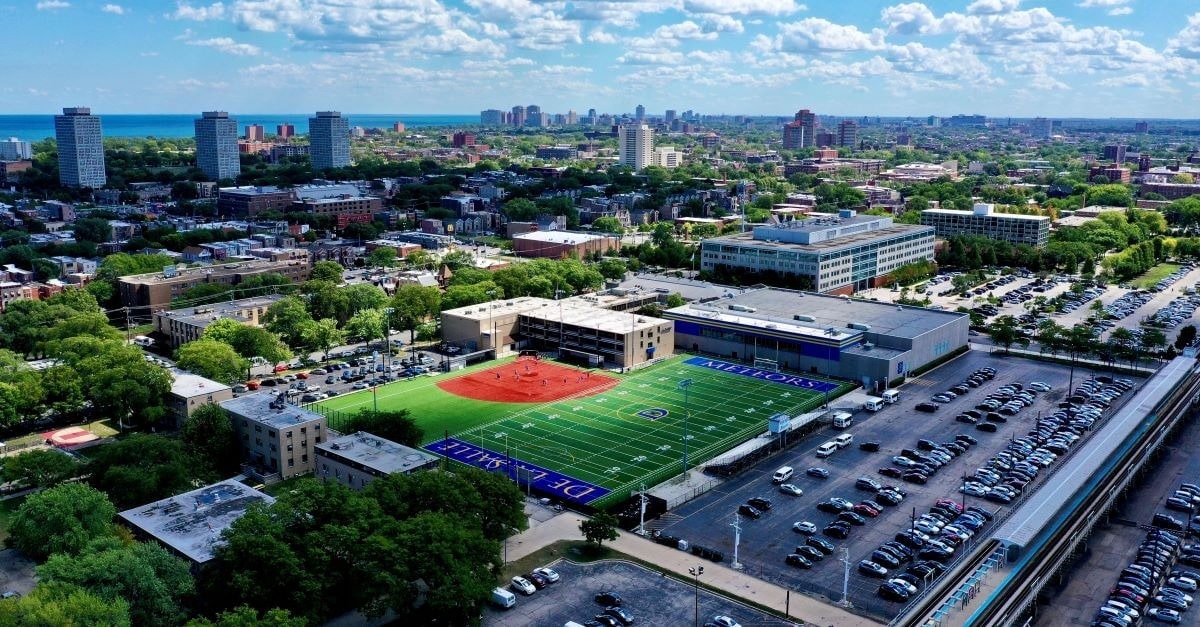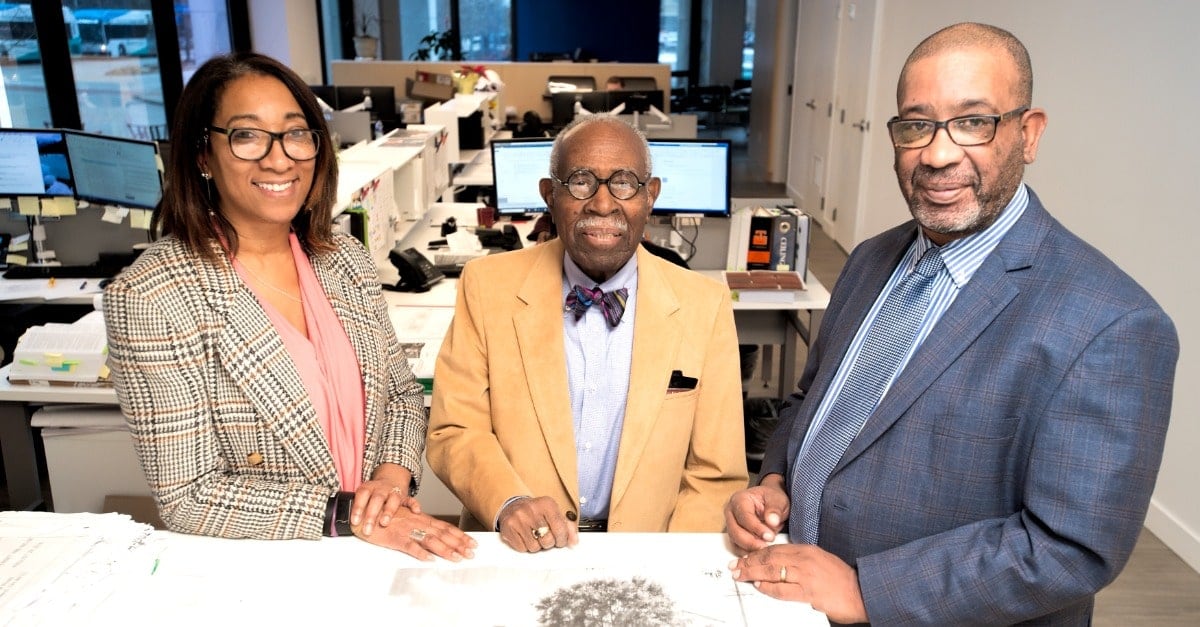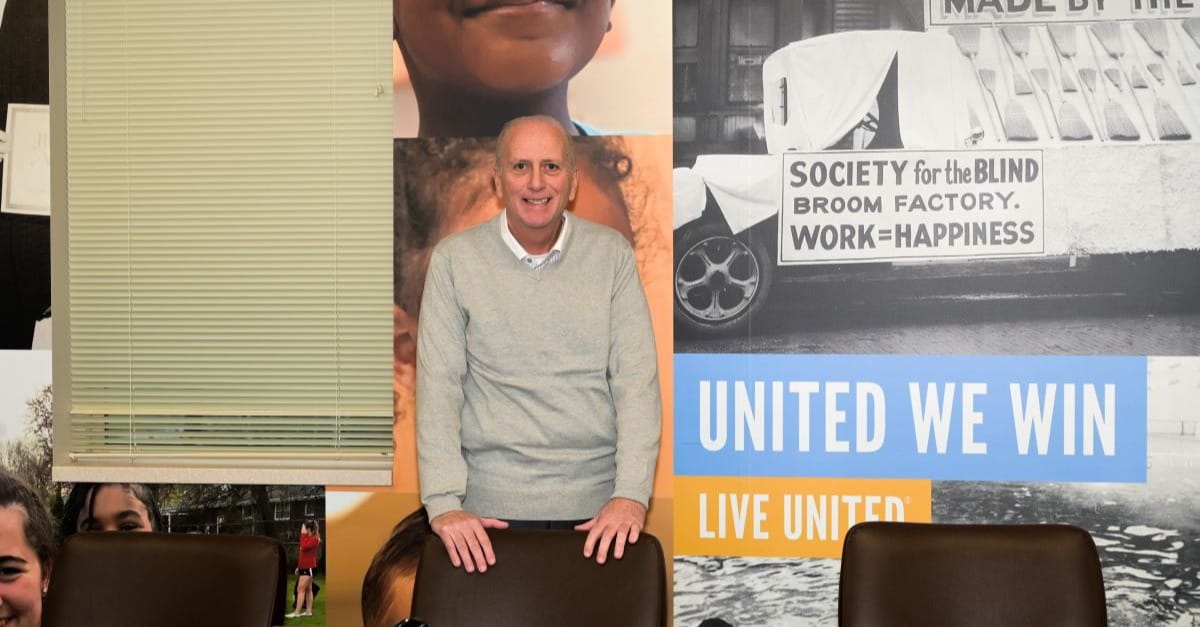About 25 years ago, during a building renovation project, De La Salle Institute installed two hard-wired computer labs. It took just six months for the labs to be deemed obsolete.
Father Paul Novak, president of De La Salle Institute – an independent Catholic secondary school on Chicago’s South Side – laughs at the memory.
“Everybody was clamoring for the technology. The administrative goal at that point became, ‘How do we get this technology into the classroom and our kids’ hands?”
De La Salle Institute, one of Chicago’s oldest education institutions, has embraced the future from its start in 1889. Formerly an all-boys school, De La Salle Institute became a co-educational facility in 2016. Today, it draws students from more than 230 suburban and urban grade schools, creating an environment that is racially, culturally, and socioeconomically diverse.
The school prides itself in being forward-thinking and innovative, pushing its 700 students to embrace technology in the pursuit of knowledge and personal betterment. “We set a goal years ago,” says Novak. “To improve this facility so the students who are entrusted in our care will receive a state-of-the-art education. We’ve made that a priority.”
On the cutting edge
Introducing new technology into the school has been seamless, recalls Novak. In 2006, the school launched an ambitious program to provide every student with a personal computer. De La Salle Institute’s facilities include a 3D printing lab, an underwater robots program, cybersecurity and coding classes, and has received funding from NASA for a land robotics program.
This focus on innovation helped De La Salle immensely when the pandemic hit, says Novak. In March 2020, the school was closed for just three days before resuming full remote learning.
“It was rough,” Novak admits. “But we had the technology in place and had upgraded the facilities in our buildings. We were fortunate to have allocated the right resources at the right time for us to be able to navigate through this pandemic.”
Support system
Delivering an immersive and high-quality education to a diverse body of students requires a tremendous amount of funding. Novak says the school depends on the community’s support for this.
“A lot of people think that private education is for the rich. That’s not our case,” says Novak. “60% of our student body is on some form of financial aid. At the same time, 96% of our students choose to pursue a college career, another 2% choose to serve our nation through military service, and another 2% find their path to a career in the trades or the workforce. The funding we need comes from generous donors, grants, and partners like Huntington that help us continue to keep the mission alive.”
De La Salle Institute relies on Huntington for its banking needs and financial advice to support their facilities and innovative programming.
“De La Salle Institute is a microcosm of what’s good about Chicago,” Novak says. “I can’t say enough about the way in which Huntington has continued to grow with us, support us, and believe in us as we’ve cared for the students that come to De La Salle.”
About the organization
Name: De La Salle InstituteWebsite: www.dls.org
Location: Chicago, Illinois
Phone: (312) 842-7355
Mission: To foster a desire for excellence in education. Young people from a variety of ethnic and economic backgrounds are given the opportunity to fully develop their abilities so they may be active, contributing members of our complex changing society.
How you can help: To make a charitable donation to support the school, visit De La Salle Institute’s website or call (312) 843-7355, ext. 152.



